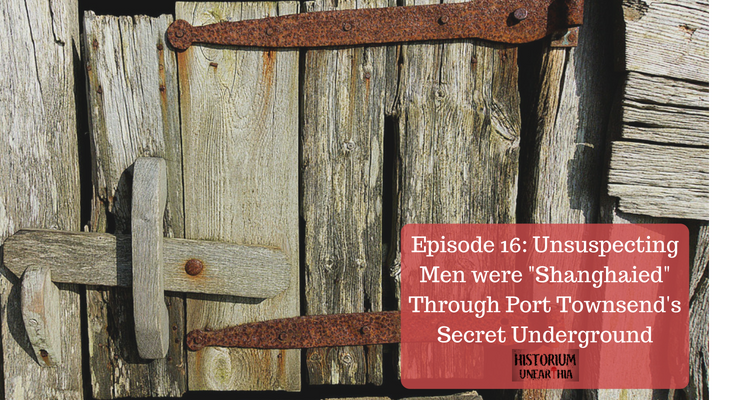At the end of the nineteenth and early twentieth centuries, the number of skilled and unskilled sailors needed to staff sea-going vessels fell short. Innocent men were forced to serve as seamen under conditions that were little better than serfdom. This cunning practice happened through a secret underground in one part of the Pacific northwest. Have you ever heard of Port Townsend’s history of shanghaiing?
Credit:
For this episode, I had the pleasure of speaking with Mark Strecker, author of Shanghaiing Sailors: A Maritime History of Forced Labor, and Norm Stevens, a retired member of the United States Coast Guard, former merchant marine, and community college professor from Port Townsend, Washington.
Sources:
Shanghaiing Sailors: A Maritime History of Forced Labor, 1849-1915; Strecker, Mark; McFarland; May 27, 2014.
Shanghaied!; Neal Keller, David; American Heritage; September 1995; Volume 46; Issue 5.
Levy, Maxwell (d. 1931), Port Townsend’s Crimper King; Gibson, Elizabeth; HistoryLink.org; December 5, 2006.
Shanghaiing Days; Dillon, Richard H.; The Write Thought, Inc.; August 1, 2012.
Shanghaiing: How Trickery and Deception Turned Thousands of Unwilling Men Into Sailors; Kaushik; Amusing Planet; April 2018.
Shanghaiing; Smith, Georgia; FoundSF; Retrieved June 2018.
Shipbuilders, Sea Captains, and Fishermen: The Story of the Schooner Wawona; Follansbee, Joe; iUniverse, Inc.; November 16, 2006.
National Registry of Historic Places Inventory – – Nomination Form; National Park Service; United States Department of the Interior; Port Townsend Historic District; 1977.
Also Visit:
Jefferson County Historical Society
The Port Townsend Main Street Program
Washington Department of Archaeology and Historic Preservation

